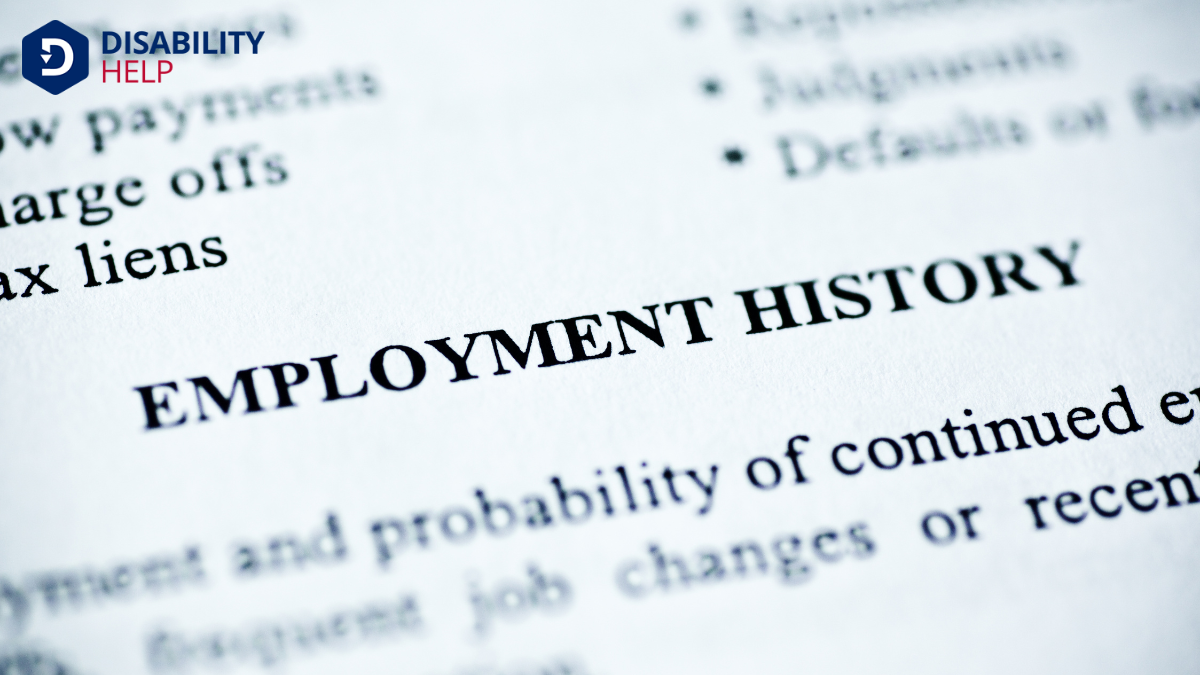When we consider applying for disability benefitsFinancial assistance provided to individuals who are unable to work due to a disability, such as Soc..., age plays a significant role in the decision-making process. As we get older, especially past 50, the Social Security Administration tends to be more lenient with its guidelines. This is because they understand the challenges older individuals face when trying to adaptA grassroots disability rights organization in the U.S. that focuses on promoting community-based se... to new work environments due to age-related factors. But what about younger applicants? Let's explore how age affects our eligibility and what it means for our disability claims.
Key Takeaways
- Applicants aged 50 and older benefit from lenient SSA guidelines, making it easier to qualify for disability benefits.
- The SSA grid rules favor older applicants, particularly those over 50, by easing work ability assessments.
- Age thresholds, such as 50 and 55, provide eligibility advantages for older individuals in disability claims.
- Older applicants face fewer challenges proving their inability to adapt to new work due to age-related difficulties.
- Medical evidence and extensive work history support older applicants' claims more effectively than younger individuals.
Understanding the Disability Qualification Process
When we explore the disability qualification process, it’s essential to understand the key criteria and steps involved.
First, we must verify that the individual meets the Social Security Administration's (SSA) definition of disability. This means the impairmentA loss or abnormality of a body structure or function, whether physical, mental, or sensory, often a... should be severe enough to limit basic activities and is expected to last at least a year or result in death.
We then gather necessary medical documentation and evidence to support the claim. The process involves submitting an application and undergoing an evaluation by the SSA. They’ll examine medical records, work history, and other relevant information.
We might need to attend a consultative exam for additional evidence. Understanding these steps helps guarantee that we're prepared and informed throughout the qualification journey.
How Age Impacts Disability Eligibility

Let's explore how age plays a vital role in determining disability eligibility.
We'll notice that younger applicants often face more hurdles due to stricter criteria, while older applicants might find the process a bit smoother with more lenient guidelines.
Understanding these age-related factors helps us navigate the application process more effectively.
Age-Related Eligibility Criteria
Understanding how age affects disability eligibility can be vital for those navigating through the complexities of benefits programs.
We notice that age can play a significant role in determining eligibility for disability benefits. For individuals aged 50 and older, Social Security Disability Insurance (SSDI)A U.S. government program that provides financial assistance to individuals who are unable to work d... considers the difficulty of adapting to new types of work due to age. This can make claims slightly easier to approve compared to younger applicants.
The grid rules, which help assess the ability to work, often favor older claimants.
For those of us exploring these options, it’s important to understand how these age-related criteria can impact our chances. Knowing this can guide us in presenting our cases effectively and guarantee we don’t overlook important factors that could affect our approval.
Younger Applicants Challenges
While traversing the path to disability benefits, younger applicants often face unique hurdles that can make the process more challenging.
We find that proving disability for younger individuals is tough because decision-makers often expect them to adapt or find alternative work. The perception that younger people can retrain or acquire new skills often works against them.
We must also consider that medical evidence for chronic conditions may be less substantial in younger years, making it harder to establish long-term disability.
Additionally, younger applicants mightn't meet the required work credit history, affecting eligibility.
Understanding these obstacles helps us empathize with younger applicants' struggles and highlights the importance of thorough documentation and expert guidance to navigate the complex system successfully.
Older Applicants Advantages
As we explore the advantages older applicants may have in securing disability benefits, it's clear that age plays a significant role. When we reach an advanced age, the Social Security Administration (SSA) often considers it more challenging to retrain for new work, making it easier to qualify for benefits.
The SSA's medical-vocational guidelines, often called the "grid rules," favor older applicants by acknowledging that adapting to new roles becomes more difficult.
Additionally, older individuals are more likely to have extensive medical records, strengthening their claims. This documentation can clearly illustrate how impairments impact daily life and work capability.
We should also recognize that certain age thresholds, like 50 or 55, can make the process smoother, as these ages offer specific eligibility advantages.
The Role of Medical Evidence in Disability Claims
Medical evidence plays an essential role in disability claims, as it provides the foundation for determining eligibility. We must gather thorough documentation from healthcare providers to support our claim. This includes medical records, test results, and treatment histories that clearly demonstrate the nature and extent of our condition.
The more detailed and extensive our documentation, the stronger our case becomes. It’s vital that our medical evidence aligns with the Social Security Administration's (SSA) criteria for disability. We should guarantee that our doctors understand these requirements and provide relevant information. By doing so, we improve our chances of a successful claim.
Let’s also remember that consistent and ongoing medical treatment strengthens our application. Regular appointments show our commitment to managing our condition, which can positively impact the SSA's decision.
Evaluating the Severity of Your Condition
Determining the severity of our condition is essential for a successful disability claim. We need to clearly demonstrate how our condition limits our ability to perform daily activities and work.
First, we should gather thorough medical documentation. This includes detailed reports from healthcare providers that outline our symptoms, treatments, and any functional limitations.
Next, we must assess how our condition impacts our daily life. Are there tasks we can no longer do independently? Documenting these changes helps illustrate the extent of our disability.
We should also consider keeping a journal of our symptoms and how they affect us.
The Influence of Work History on Eligibility

Let's explore how our work history plays an essential role in determining disability eligibility.
The duration of our employment, the relevance of our job experience, and the consistency of our work history can greatly impact our qualifications.
Impact of Employment Duration
When considering eligibility for disability benefits, the duration of one's employment history plays a vital role.
We've found that Social Security Disability InsuranceA form of insurance that provides income to individuals who are unable to work due to a disability. (SSDI) requires us to have worked a certain number of years, earning enough credits. Generally, the longer we've been employed, the more credits we accumulate. This directly impacts our eligibility, as SSDI calculates credits based on our work history and age.
For instance, those of us who are younger need fewer credits, while older individuals must have accrued more.
It's important to understand that these credits reflect our contributions to the Social Security system, confirming our eligibility. By ensuring we've worked consistently over the years, we improve our chances of qualifying for disability benefits when we need them.
Relevant Job Experience Matters
Work experience isn't just about years on the clock; it's about the relevance of the roles we've held. When applying for disability benefits, our work history can greatly impact eligibility. Specific skills and experiences can make our applications more compelling.
For instance, if we've worked in physically demanding jobs, it might be easier to demonstrate how a disability affects our ability to continue working. On the other hand, roles that require mental acuity might help us illustrate cognitive challenges.
The Social Security Administration considers how our past jobs align with our current capabilities. If our previous work involved tasks we're no longer able to perform due to disability, this can strengthen our case.
Understanding this can help us present a clearer picture of our situation.
Consistency in Work History
A consistent work history can greatly influence our eligibility for disability benefits. When we’ve maintained steady employment, it demonstrates our capacity and willingness to work before our disability occurred. This history can help us prove our case when applying for benefits.
Social Security, for example, requires a certain number of work credits, which are earned through years of employment and paying into the system. If we've worked consistently, it’s likely we’ve accumulated enough credits, increasing our chance of approval.
Additionally, a solid work history can illustrate the impact our disability has had on our ability to work, providing a clearer picture for evaluators. Maintaining accurate records and documentation of our employment history is essential in making our case stronger and more compelling.
Age-Related Health Conditions and Their Impact
As we age, it's crucial to understand how age-related health conditions can greatly impact our daily lives.
These conditions often affect our ability to perform tasks we once took for granted. Let's explore some common issues that can arise and influence our eligibility for disability benefits.
- ArthritisInflammation of the joints, leading to pain, stiffness, and limited movement.: This condition can lead to chronic painLong-lasting pain that persists beyond the usual recovery period or occurs along with a chronic heal... and mobility challenges, making simple movements difficult.
- Vision Loss: Age-related eye diseases can limit our ability to perform daily activities safely.
- Hearing LossPartial or total inability to hear sounds in one or both ears.: Difficulty hearing can affect communication and increase the risk of isolation.
- Cognitive Decline: Conditions like Alzheimer's can severely impact memory and decision-making skills.
Disability Programs and Their Age Criteria
Many disability programs have specific age criteria that determine eligibility, and understanding these can help us navigate the system more effectively.
Programs like Social Security Disability Insurance (SSDI) and Supplemental Security Income (SSI) are often influenced by age. As we age, our work history and medical conditions may align more closely with program requirements.
For SSDI, it’s essential to have sufficient work credits, which typically accumulate as we work over the years. Meanwhile, SSI doesn’t require work credits but focuses on financial need.
Age can impact how medical conditions are evaluated; older applicants might have an advantage as age-related limitations are considered.
Younger Applicants and Disability Benefits

While older applicants often find their age working to their advantage in disability programs, younger individuals face unique challenges. We must navigate a system that doesn’t always recognize the severity of our conditions due to our age.
Here's what we should consider:
- Medical Evidence: Gathering thorough medical records is essential to substantiate our claims.
- Work History: Limited work history might impact our claims, but it’s not a barrier if we present strong medical evidence.
- Perceptions of Age: There's a common misconception that younger individuals bounce back more easily, which affects our case.
- Vocational Skills: Demonstrating how our disability affects our ability to perform any job can strengthen our application.
The Importance of Meeting Specific Requirements
Understanding and meeting specific requirements is vital for successfully traversing the disability benefits system. We need to realize that criteria differ based on age and individual circumstances.
By carefully reviewing the eligibility criteria, we can guarantee that our application aligns with what's necessary for approval. It's essential to demonstrate how our condition truly impacts daily life and work capabilities.
Documentation from healthcare providers supports our claims, making our case stronger. Let’s focus on gathering thorough medical records and any other relevant documents.
Guaranteeing accuracy and completeness can prevent unnecessary delays or denials. By taking the time to understand these requirements, we improve our chances of approval.
Together, let's navigate this process with confidence and clarity, guaranteeing our efforts lead to success.
Navigating the Application Process at Different Ages
As we explore the application process for disability benefits, it's essential to recognize how age can greatly affect our approach. Different ages bring unique challenges and opportunities, shaping how we navigate the system.
For younger applicants, proving the inability to work due to disability might require more extensive medical evidence. Older applicants, however, often benefit from age-related considerations that may ease the process.
To successfully navigate the application process, let's focus on:
- Gathering thorough medical documentation: This is fundamental regardless of age.
- Understanding age-specific criteria: The Social Security Administration considers age in its disability determination.
- Seeking professional guidance: Consulting with disability advocates or attorneys can clarify complex age-related nuances.
- Staying informed on policy changes: Regulations may shift, impacting age-related eligibility.
Conclusion
In summary, as we navigate the disability qualification process, we recognize that age plays a significant role. For those of us over 50, the guidelines are more lenient, and the grid rules for those 55 and up often work in our favor. However, regardless of age, solid medical evidence and a clear comprehension of the requirements are key. Let's make certain we're well-prepared, so we can confidently approach the application process and secure the benefits we need.






